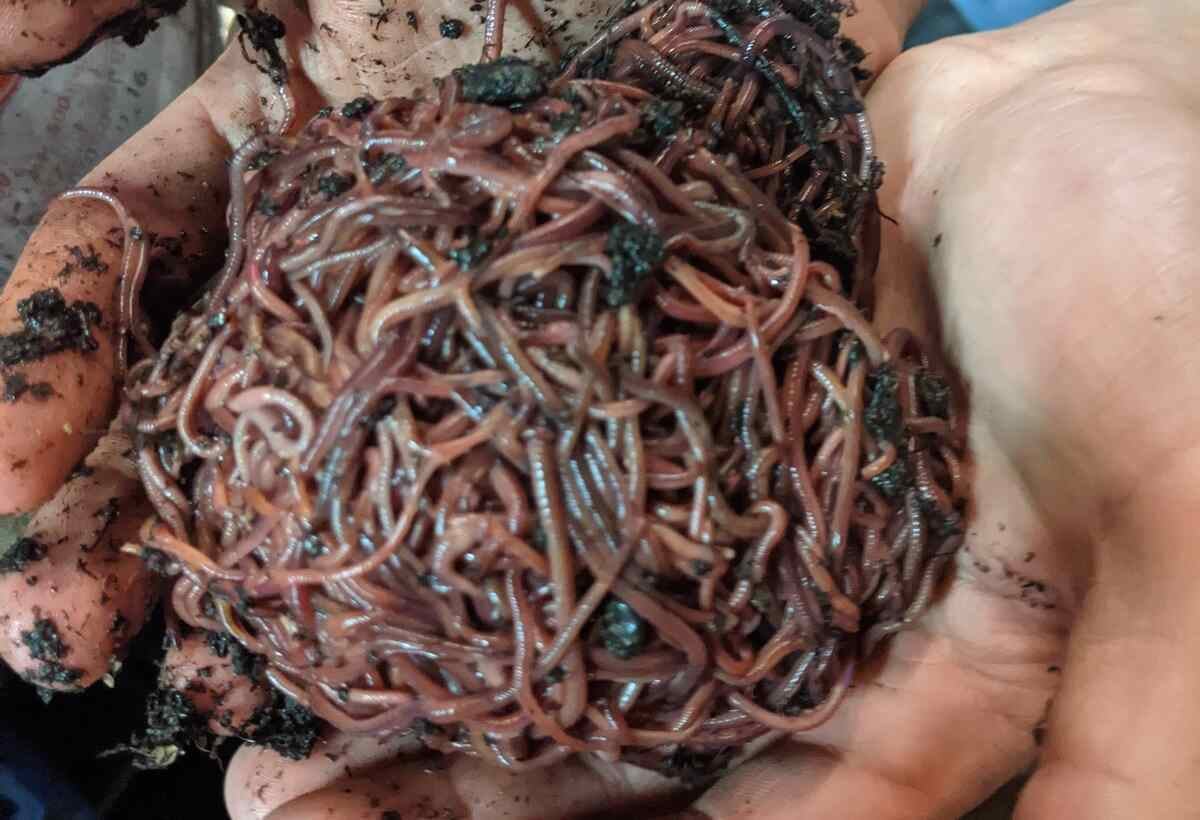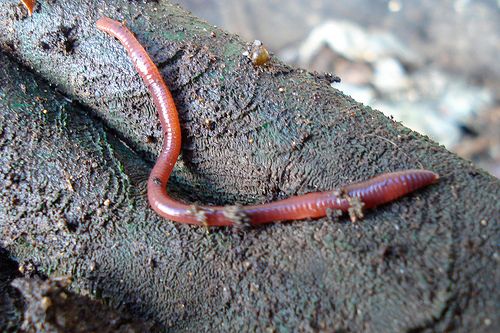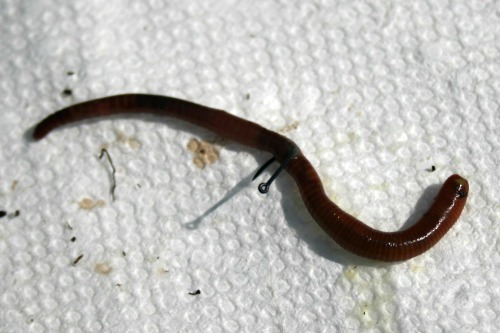Lake Hickory Bait: Reliable Supplies for Every Level of Fishing
Lake Hickory Bait: Reliable Supplies for Every Level of Fishing
Blog Article
Red Wigglers 101: Everything You Need to Know for Thriving Gardens
Red wigglers, or Eisenia fetida, play a crucial role in sustainable gardening practices, serving as efficient decomposers that transform natural waste into important vermicompost. Understanding their environment, nutritional choices, and the myriad benefits they offer can change your gardening technique (Red Wiggler Express). As these worms prosper in particular conditions, their care and management are important for maximizing their payments to dirt wellness. The question stays: what actions can you take to harness the complete capacity of these amazing microorganisms in your own yard?
Comprehending Red Wigglers

Red wigglers prosper in settings abundant in organic material and dampness. Red Wiggler Express. They possess a special gastrointestinal system that permits them to process food scraps promptly, eliminating castings that are loaded with necessary nutrients such as nitrogen, phosphorus, and potassium. These spreadings boost soil framework, enhance water retention, and foster helpful microbial task, all of which add to durable plant wellness
Furthermore, red wigglers can endure in diverse conditions, making them adaptable to numerous horticulture practices, consisting of interior and exterior composting systems. Their capacity to eat large quantities of natural waste day-to-day positions them as beneficial allies for both home garden enthusiasts and commercial cultivators. By including red wigglers into horticulture initiatives, one can substantially improve dirt fertility and assistance sustainable gardening practices.
Ideal Habitat for Red Wigglers
Developing an ideal environment for red wigglers is crucial for maximizing their composting capacities and overall health. Red wigglers grow in wet, dark, and well-aerated environments, which closely resemble their natural surroundings in fallen leave trash and decomposing natural issue. An appropriate environment should supply a temperature level range between 55 ° F and 77 ° F(13 ° C to 25 ° C), as severe temperature levels can stress or harm the worms.
The bed linen product, such as shredded newspaper, cardboard, or coconut coir, need to be kept wet but not extremely damp, as extreme moisture can bring about anaerobic conditions destructive to worm health and wellness. Additionally, a pH level between 6.0 and 7.5 is excellent, making certain a well balanced setting.
Proper oygenation is just as crucial; it enables oxygen flow and avoids the build-up of dangerous gases. A container or bin made for vermicomposting need to have drainage holes to get rid of excess dampness and promote air flow. Normal surveillance of these conditions is crucial for preserving a thriving red wiggler populace, eventually improving their efficiency in damaging down organic waste and enhancing garden dirt.
Dietary Needs and Preferences

Red wigglers show specific preferences; they are particularly keen on softer, decomposing products over more challenging or even more fibrous materials. It is necessary to avoid feeding them citrus peels, onion, and garlic in large amounts, as these can be unsafe. In addition, meat, dairy, and oily foods ought to be omitted, as they can attract parasites and produce unpleasant odors.
(Granite Falls NC Worms For Sale)To keep optimum health and wellness, a well balanced mix of environment-friendly and brownish materials is advised. Environment-friendly products, such as vegetable scraps, offer nitrogen, while brownish materials, like cardboard and dried out leaves, supply carbon. Keeping an eye on the moisture web content and making certain a regular food supply will additionally improve their growth and composting capacities. By providing to their dietary demands, garden enthusiasts can cultivate a thriving population of red wigglers in their compost systems.
Advantages of Using Red Wigglers
The amazing advantages of making use of red wigglers in gardening expand much past their function in composting. These functional organisms contribute dramatically to dirt health and wellness, boosting nutrition schedule and promoting microbial activity. By aerating the soil as they delve, red wigglers improve drainage and root penetration, producing an optimal setting for plant development.
In addition, red wigglers are effective recyclers of organic waste, transforming it into nutrient-rich spreadings that serve as a superb all-natural plant food. These castings have beneficial microorganisms and essential nutrients, such as nitrogen, phosphorus, and potassium, which are vital for plant advancement. The sluggish release of nutrients from worm spreadings guarantees a constant supply, lessening the threat of nutrient leaching and advertising lasting gardening techniques.
Additionally, the visibility of red wigglers can aid subdue soil-borne plant diseases. Their digestive system procedures create substances anchor that inhibit harmful microorganisms, consequently enhancing plant wellness. Finally, making use of red wigglers cultivates a much more lasting gardening strategy by decreasing dependence on chemical fertilizers and promoting a closed-loop system, where waste is changed into valuable sources. On the whole, incorporating red wigglers into horticulture methods offers a plethora of ecological and agricultural benefits.
(Red Wiggler Express)
Composting With Red Wigglers

To initiate a successful vermicomposting system, choose an ideal container with correct ventilation and water drainage. The perfect environment for red wigglers includes a damp, dark setup with temperatures in between 55 ° F and 77 ° F. Begin by layering shredded paper, cardboard, and food scraps, making sure a balanced mix of carbon and nitrogen-rich products.
Red wigglers grow on veggie peels, fruit scraps, coffee grounds, and eggshells, while avoiding meat, dairy products, and oily foods that can draw in bugs. Consistently keep track of dampness levels; the bedding should be damp but not soggy. Harvest worm castings every couple of months by dividing the worms from the garden compost, which can then be utilized directly in yards or stored for later usage.
Implementing vermicomposting not only decreases garbage dump waste but also enriches garden dirt, advertising healthy and balanced plant growth and lasting horticulture techniques. Embrace this environment-friendly approach to boost your horticulture ventures.
Final Thought
In summary, red wigglers are essential organisms for improving garden efficiency with effective composting. Their particular environment needs, nutritional preferences, and considerable benefits add to sustainable gardening practices. By utilizing red wigglers, garden enthusiasts can considerably improve soil quality and nutrient accessibility, fostering much healthier plant development. Welcoming the technique of vermicomposting not only sustains waste decrease yet also promotes an eco-friendly equilibrium within garden environments, ultimately causing thriving and durable gardens.
Report this page